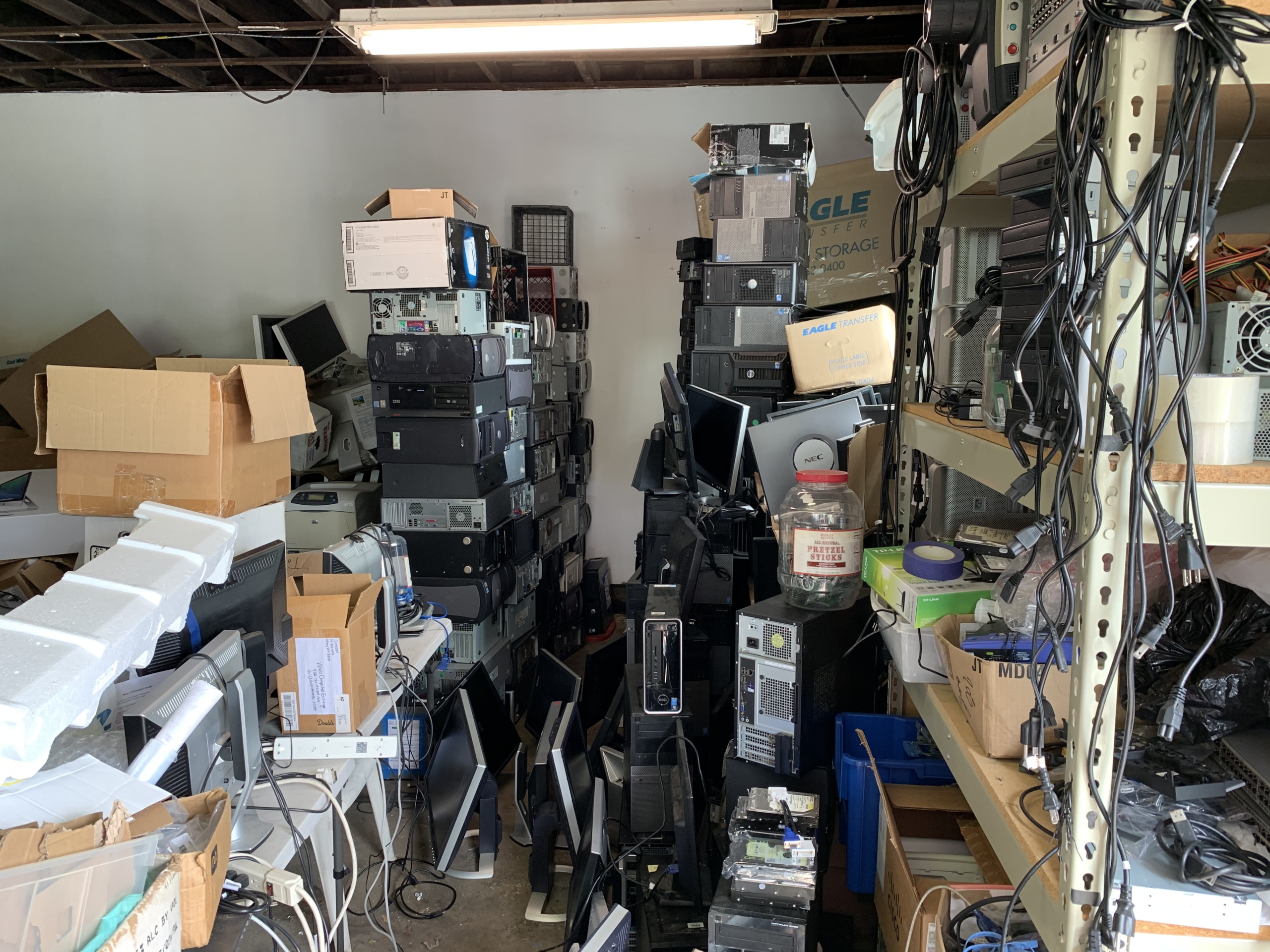
Nebraska farmers vote overwhelmingly for Right to Repair
Delegates of the Nebraska Farm Bureau, which represents 58,000 member families, voted nearly-unanimously on a voice vote to formally endorse the right of its constituents to repair the products they own, and set strong standards for any legislation or agreement with equipment manufacturers.
Yesterday, the Nebraska Farm Bureau voted 176-1 to back Right to Repair
by @nProctor
Delegates of the Nebraska Farm Bureau, which represents 58,000 member families, voted nearly unanimously on a voice vote to formally endorse the right of its constituents to repair the products they own, and set strong standards for any legislation or agreement with equipment manufacturers. The vote held at the Farm Bureau’s annual meeting clearly shows support for continued work on Right to Repair, and repudiates recent attempts by the equipment industry to convince farmers to settle for a half measure.
The Nebraska delegation also unanimously voted to submit the final wording of the proposal to the American Farm Bureau. The national group, which has endorsed Right to Repair before, then can determine whether to adopt the language in its official policy, when it holds its annual meeting in January.
Repair.org advocate and Nebraska Farm Bureau member Willie Cade, said, “If you didn’t know, now you know: Farmers want to be able to fix their stuff. It is gratifying that the Farm Bureau has overwhelming approved real Right to Repair policy for family farms.”
U.S. PIRG has been running Right to Repair campaigns across the country, which reduce barriers to repair a wide variety of products — from tablets, to toasters, to tractors.
Why Right to Repair matters for farmers
Working equipment is mission-critical for farms.
If you can’t harvest your crop because the equipment you need isn’t functioning, you can’t earn a living. But modern farm equipment is getting harder and harder to fix because manufacturers such as John Deere won’t give farmers or independent mechanics access to what they need to repair the equipment outside of their dealerships.
This is especially true of the software locks on the equipment that require access to dealership-only software to fully repair. A documentary by Vice cataloged how farmers have taken to hiring hackers and buying black market software to bypass the software locks so they can keep equipment in the fields.
Because of these challenges, farmers have been working to support Right to Repair in states across the country.
There has been significant resistance to Right to Repair from both equipment manufacturers and dealerships. In my experience lobbying in several states, I often see the dealerships fighting against it. For example, at a hearing in New Hampshire earlier this year, there were dozens of dealership employees from various John Deere and Kabuto dealerships, even though farm equipment was exempt from the bill.
Their opposition comes as no surprise. Auto dealerships similarly opposed Right to Repair legislation for cars, which passed on the ballot in Massachusetts in 2012. The Massachusetts law became the basis for a national agreement between the independent auto mechanics and manufacturers, which is in effect nation-wide.
A Crain’s Chicago Business article reported that dealers make five times the profit margin off repair than they do off the sale of new equipment.
Equipment industry has been pitching half-measure
In a tactic that some farmers have described to me as simply a stall tactic, equipment manufacturers and dealers have proposed a voluntary agreement to release some of the parts and information needed for repairs, which can be found at r2rsolutions.org.
“It’s a half measure meant to distract farmers, without dealing with the core of the problem,” said Repair.org Executive Director Gay Gordon-Byrne, a leading national voice on Right to Repair. “It’s important that farmers called it out, and put down exactly what a right to repair means.”
The measure adopted by the Nebraska Farm Bureau laid out specific standards for any agreement or legislation:
Right to Repair: Nebraska Farm Bureau supports the implementation of comprehensive right to repair legislation OR a negotiated written agreement between ag producers and original equipment manufacturers (OEMs). This legislation or agreement must:
1. Be enforceable.
2. Guarantee farmer/owner and independent repair technician access to the information, parts, and tools that are available to dealerships, acknowledging pricing structures may be different for farmer/owners vs. independent repair technicians. The diagnostic and repair information and tools must be fairly priced and delivered in a timely manner.
3. Include ALL OEM equipment, regardless of age, model, or years in use at the time of the effective date.
4. Differentiate between repair (the restoration of hardware to its original intended function) and illegal modification.
5. Not require any agricultural equipment owner to agree to any contract which removes existing rights.
Furthermore, Nebraska Farm Bureau would support an agreement which grants farmer/owners and independent repair technicians’ access, similar to the agreement reached in the automobile & light truck owners’ industries. Absent progress on an agreement by January 1, 2021 Nebraska Farm Bureau would consider supporting legislation achieving the same.
Nebraska farmers’ affirmation of these principles is significant because the equipment industry has been pressuring farm groups to accept the terms of their “R2R Solutions.”
In California, the California Farm Bureau signed on to the industry’s principles last year, which frustrated some California farmers. Here’s what California rancher Jeff Buckingham said at the time:
“I will gladly welcome more ways to fix the equipment on my farm. Let’s be clear, though, this is not right-to-repair … At the end of the day, I bought this equipment, and I want everything I need to keep it running without relying on the manufacturer or dealer.”
The Nebraska deal is much better for farmers and can set a template for others moving forward.
“If we want Right to Repair we will need supporting legislation to keep the industry honest. That’s why the campaigns in states across the country are so critical,” said Cade.
Topics
Authors
Nathan Proctor
Senior Director, Campaign for the Right to Repair, PIRG
Nathan leads U.S. PIRG’s Right to Repair campaign, working to pass legislation that will prevent companies from blocking consumers’ ability to fix their own electronics. Nathan lives in Arlington, Massachusetts, with his wife and two children.
Find Out More

Why Microsoft extended Windows 10 support for schools for $1

Why do we toss working devices?

6 surprising facts from the UN’s 2024 electronic waste report


